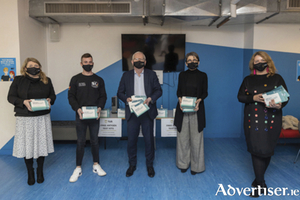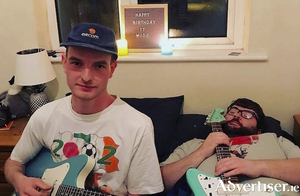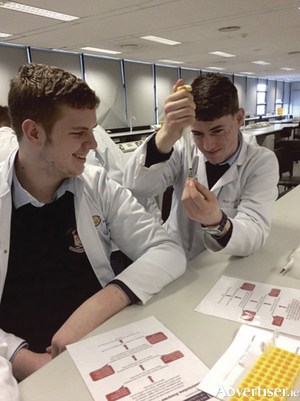Search Results for 'Molecular biology'
18 results found.
Significant numbers of antigen test kits made available to TUS students

More than 70,000 antigen tests are to be handed out to students at the Technological University of the Shannon (TUS) this month.
Make a resolution to enjoy more fish in 2022
Packed with high quality protein, fish is a great source of vitamins, minerals, and heart-healthy omega 3 fatty acids. Make a resolution to enjoy more of it in the New Year.
GRETB training centre to take part pilot Covid-19 antigen testing scheme

The Galway Roscommon ETB Training Centre Galway in Mervue Business Park, has been chosen as part of a State-wide pilot antigen testing scheme.
What a year we've had and there's more twists and turns to come

2020 has been a year like no other. A lot has happened since I was on these pages.
Field Trip headline Citóg Records launch

SOME OF the cream of Galway's indie rock bands, singer-songwriters, and solo artists will take to the stage of the Róisín Dubh for the launch of the fourth compilation album from Galway label Citóg Records.
Throwback Time this weekend at DNA

THE 1980S brought us the Cabbage Patch Kids, Paula Abdul, Teddy Ruxpin, shoulder pads, and perms. The 1990s delivered Tamagotchis, snap bracelets, Pokémon, Power Rangers, dial-up internet, scrunchies, and Bill Clinton jokes.
Go for golden
Acrylamide is a compound that is produced when many foods, particularly starchy foods, are cooked – or more importantly ‘browned’. Acrylamide has been found both in processed foods and also in foods cooked at home. The acrylamide forms when a food is roasted, toasted, grilled, or fried. Foods implicated would be toasted bread; potatoes, whether fried (chips or crisps) or roasted; vegetables (roasted or fried as veggie crisps); or other starchy foods like biscuits or crackers. All these foods develop acrylamide during the cooking process due to the ‘Maillard reaction’ which is the reason these foods go brown.
Learn how to unlock the DNA code at NUI Galway

NUI Galway’s School of Natural Sciences will hold a special event for secondlevel students in senior cycle biology on Saturday April 25 to celebrate International DNA Day.
REMEDI enters agreement with US company to advance research into diabetic foot ulcers
REMEDI, The Regenerative Medicine Institute at NUI Galway and Orbsen Therapeutics have entered into an agreement with Cardium Therapeutics to utilise Cardium’s Excellagen® pharmaceutically-formulated gel as a delivery agent for Orbsen Therapeutics’ proprietary stromal cell therapy in pre-clinical studies for the potential treatment of diabetic foot ulcers.


